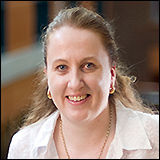Three of seven scholars in the first cohort of Vanderbilt’s Academic Pathways Fellows will be working with School of Engineering faculty members.
The postdoctoral program addresses the acute need for greater diversity in the professoriate by offering a specialized experience for new Ph.Ds from underrepresented backgrounds. They will receive enhanced teaching and professional development opportunities geared toward future academics.
The program is supported by the office of Chancellor Nicholas S. Zeppos and the office of Provost and Vice Chancellor for Academic Affairs Susan R. Wente, with additional funding from the National Science Foundation.
The Fellows with ties to the Engineering School are:
Diego Mesa, who earned a Ph.D. is in bioengineering from the University of California – San Diego. Mesa will work with Tom Lasko, assistant professor of biomedical informatics, and Eugene Vorobeychik, assistant professor of computer science and computer engineering.
Dean Stolworthy, who earned a Ph.D. in mechanical engineering from Brigham Young University. Stolworthy will work with Karl Zelik, assistant professor of mechanical engineering, and Michael Goldfarb, H. Fort Flowers Professor of Mechanical Engineering.
Monica Ridgeway, who earned a Ph.D. in instruction and the science of learning from the University of Buffalo. Ridgeway’s mentors are Ebony McGee, assistant professor of diversity and STEM education, and William Robinson, associate professor of electrical engineering and computer engineering.
The program is administered through the newly created Office of Postdoctoral Affairs in the Graduate School, directed by Clare McCabe, Cornelius Vanderbilt Professor of Chemical and Biomedical Engineering and associate dean of the Graduate School.

Fellows were chosen from an initial field of 70 applicants that was narrowed down to 15 finalists who were then invited to campus for four days in February to meet with deans, department chairs and other faculty. The fellows also participated in workshops on strategies for postdoctoral success, teaching and proposal writing, and presented their research at the inaugural Academic Pathways Symposium, which was open to the Vanderbilt community.
“By providing the Academic Pathways Fellows with the opportunity to perform first-rate career-building research while simultaneously participating in professional development activities targeted toward preparing them for future academic careers, Vanderbilt is supporting these young future faculty members at a critical point in their professions,” McCabe said.
Keivan Stassun, senior associate dean for graduate education and research in the College of Arts and Science, was principal investigator of the National Science Foundation grant, of which McCabe is co-principal investigator.
“In launching the Academic Pathways program Vanderbilt is making a clear statement that advancing faculty diversity is a priority both for Vanderbilt itself and for the nation,” he said.
All fellows will arrive on campus by September 2017. For more information about the Academic Pathways program, contact Clare McCabe.
Media Inquiries:
Liz Entman, (615) 322-NEWS
Liz.entman@vanderbilt.edu